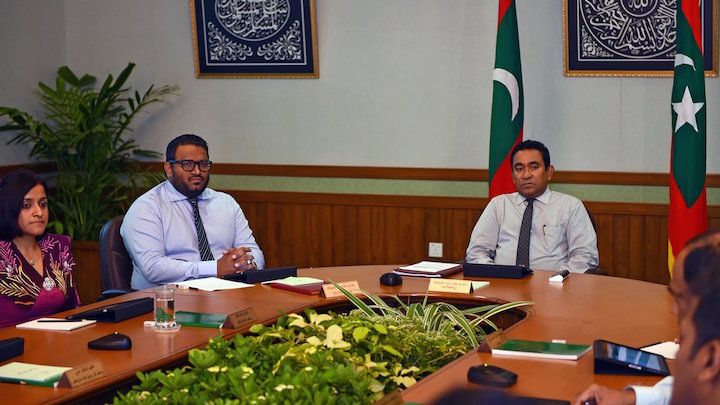Government authorised to award multi-million dollar projects without bidding
Changes brought to the public finance regulations by the finance ministry in late May has authorised the cabinet to award ‘mega projects’ and projects carried out with concessional loans or assistance from a foreign country without a bidding process or approval by the tender evaluation board.

02 Aug 2015, 09:00
Changes brought to the public finance regulations by the finance ministry in late May has authorised the cabinet to award ‘mega projects’ and projects carried out with concessional loans or assistance from a foreign country without a bidding process or approval by the tender evaluation board.
The new regulations also allow the cabinet or its ministerial economic council to award projects to private and state-owned companies, bypassing the previously mandatory bidding and evaluation processes.
State institutions were previously required to seek approval from the tender evaluation board to award contracts for projects worth more than MVR1.5 million (US$97,276).
Under the new rules, the economic council is only required to review information such as the project’s details, estimated cost and chosen contractor before approving contracts. The information must also be shared with the Anti-Corruption Commission (ACC) and Auditor General’s office.
Become a member
Get full access to our archive and personalise your experience.
Already a member?
Discussion
No comments yet. Be the first to share your thoughts!
No comments yet. Be the first to join the conversation!
Join the Conversation
Sign in to share your thoughts under an alias and take part in the discussion. Independent journalism thrives on open, respectful debate — your voice matters.




